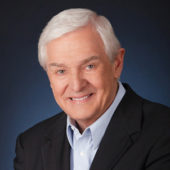Does your new year’s resolution have anything to do with making or breaking a habit? Most do. Many of us recognize that habits are powerful. It seems to be through habits that we have the power to change our lives for the better –or the worse.
The Lord came up with this first. He began the first habit –taking Sabbath. Throughout Scripture, He encouraged and discouraged many other habits. Teach your children the Word regularly, binding it to your person, He said. In the New Testament, He warns us not to get into the habit of skipping out on fellowship.
Our God is a God of habits. We must be careful, however, that we don’t confuse the order. We often make habits out to be Gods. Look out:
A habit should not be too important too interrupt
“Lord our God, other lords besides you have ruled over us, but your name alone do we honor.” Isaiah 26:13
Oswald Chambers once pointed out that we can reach the point of worshiping our habits. He highlighted that a having the habit of doing devotions could become more important to us than the actual devoting of self to God.
When habits become so essential that they cannot be tweaked, they’ve superseded their role. We are not to worship or be ruled by habits. The Lord created habits as a way for us to have self-control, not to give up control to false gods of routine.
A habit should not be stagnant
“But be transformed by the renewal of your mind, that by testing you may discern what is the will of God, what is good and acceptable and perfect.” Romans 12:2
The will of God does not change. Our understanding of and following it does require change on our sinful behalf, though. To be transformed by renewal through Christ means He continues to be renewing and transforming us.
Habits can make us stagnant. Rather than allowing us the surprises of the Lord as His will leads us in different ways, stagnant habits keep us stuck in the lesser of our faith. Some call it the “comfort zone.”
A habit should not be meaningless
“The purposes of a person’s heart are deep waters, but one who has insight draws them out.” Proverbs 20:5
Do the hollow words of “prayer” before dinner glorify God when the speaker says them simply out of the habit of avoiding arguments or appearing unspiritual? Habits, meant to glorify God as all His created ought to, should not be meaningless.
Once meaningless, a habit has a life of its own. It is free to be used against a person’s soul and against the Lord’s purposes because it exists for the sake of something other. Search your heart as you consider breaking or forming habits this new year: why are you choosing to?
How can your habits be humbly submitted to the Lord, kept in alive in His will, and remain rooted in righteous intention instead of selfish gain?




















